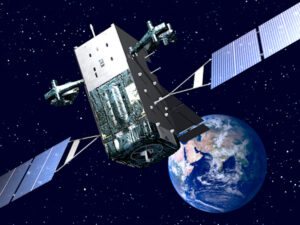By Sandra Erwin

WASHINGTON — A Department of the Air Force report proposing changes to Space Force acquisition programs was sent to Congress in May but pulled back shortly after.
Shawn Barnes, deputy assistant secretary of the Air Force for space acquisition and integration, said on July 30 that the report is still under review.
“I’m a little frustrated by that,” Barnes told reporters during a conference call.
The congressionally mandated report titled “Alternative Acquisition System for the United States Space Force” has not yet been signed off by the White House Office of Management and Budget.
“I think we’re very close with OMB at this point,” said Barnes. He declined to comment on specific items in the report that OMB disagreed with. He said there were “a couple of sticking points” but not significant.
According to Capitol Hill sources, the main reason OMB objected to the report is an Air Force recommendation that Congress “incrementally” appropriate funding for large programs like satellites instead of fully funding the entire cost of the program in the year the satellite is ordered.
Because satellites are big-ticket items — each can cost a billion dollars or more — fully funding a satellite in the year it is ordered consumes an overwhelming share of the space procurement budget for that year. The Air Force argued that incremental funding would give the Space Force more budget flexibility to allocate funds to other space programs as needs arise.
Under incremental funding, the cost of a satellite is divided into multiple annual portions, or increments. Congress then approves each year’s increment in that year’s budget.
Some congressional appropriators would favor incremental funding because it would give lawmakers more control of how much money DoD gets each year for a program. But OMB prefers to get full funding and then apportion it according to the rhythm of the program as it progresses through the development and procurement phases. Partial funding of satellites is strongly opposed by OMB, these sources said.
July 31, 2020 at 02:57AM
via SpaceNews read more...

0 Comments